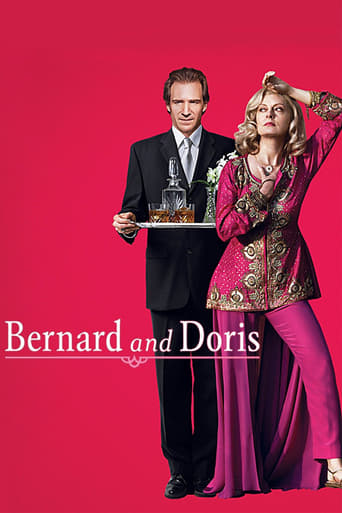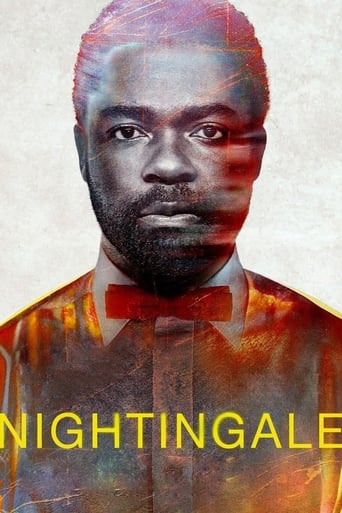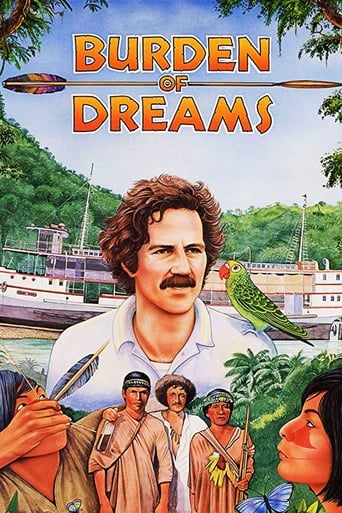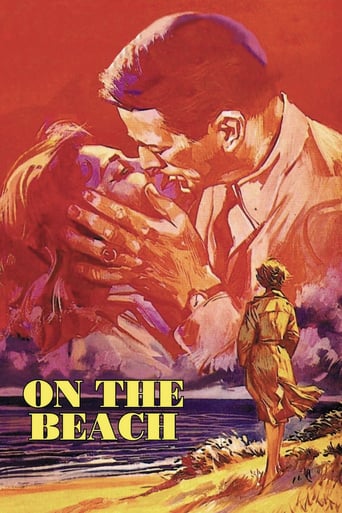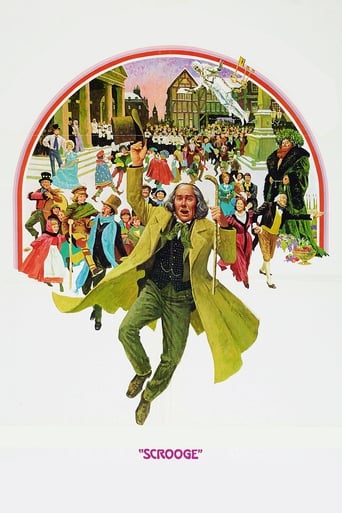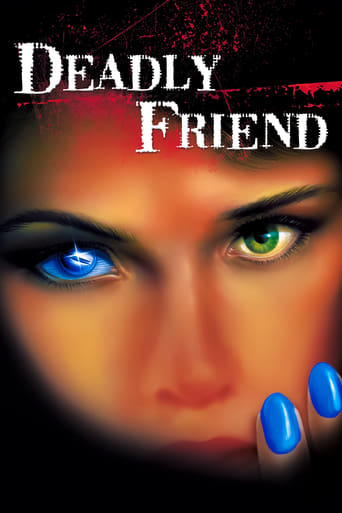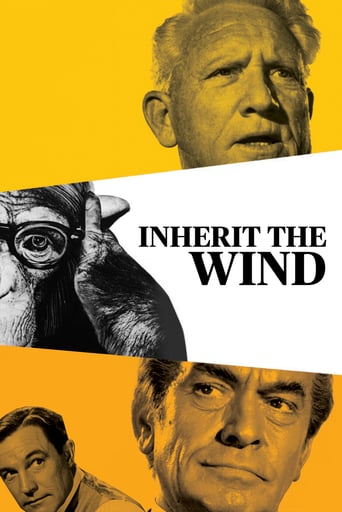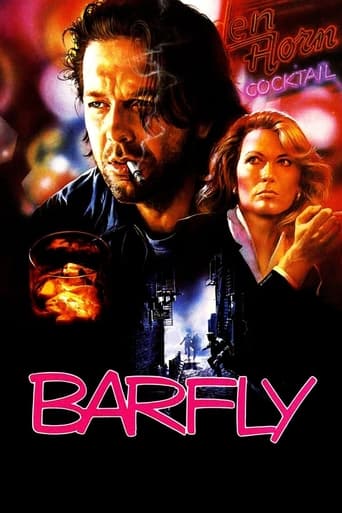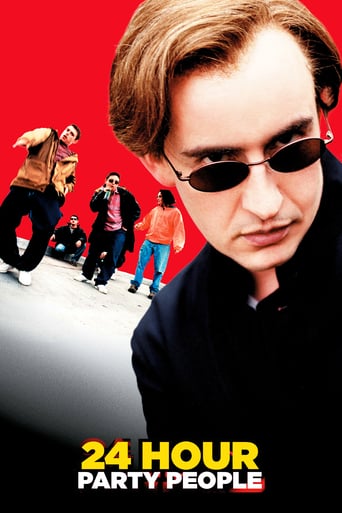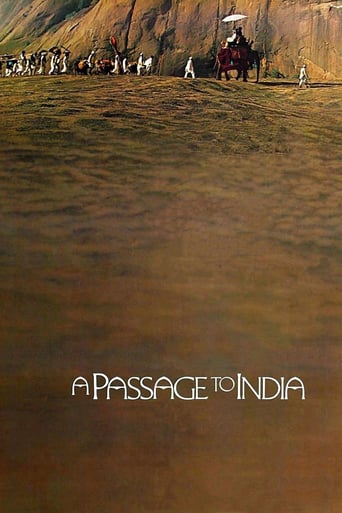


A Passage to India
Set during the period of growing influence of the Indian independence movement in the British Raj, the story begins with the arrival in India of a British woman, Miss Adela Quested, who is joining her fiancé, a city magistrate named Ronny Heaslop. She and Ronny's mother, Mrs. Moore, befriend an Indian doctor, Aziz H. Ahmed.
-
- Cast:
- Judy Davis , Victor Banerjee , Peggy Ashcroft , James Fox , Alec Guinness , Nigel Havers , Richard Wilson


Similar titles
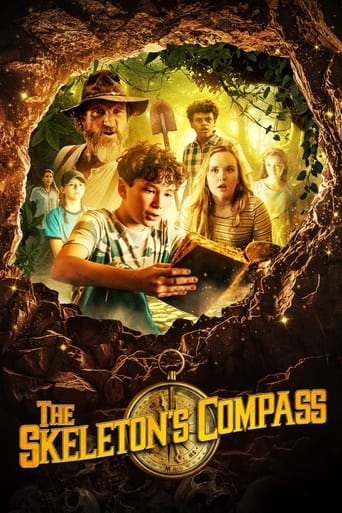
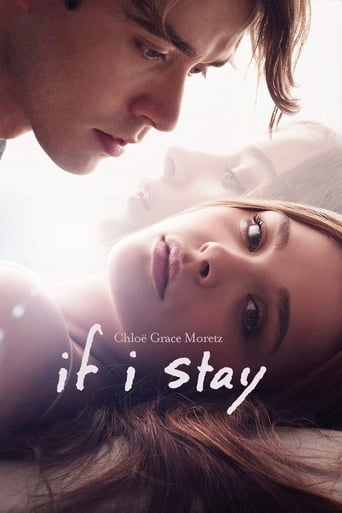
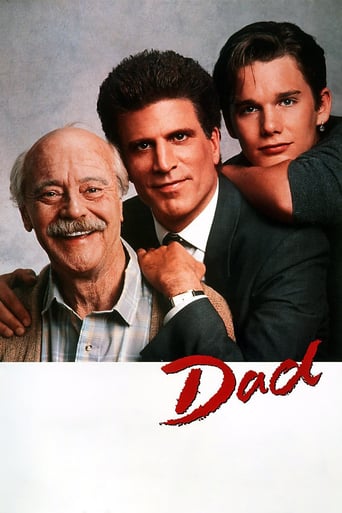
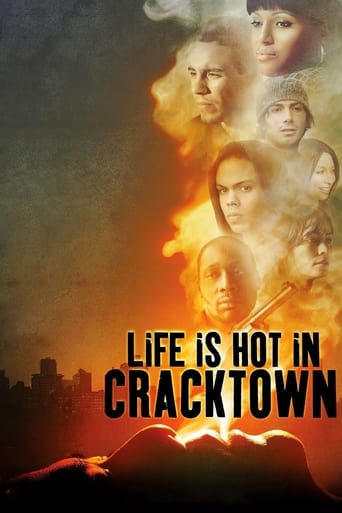
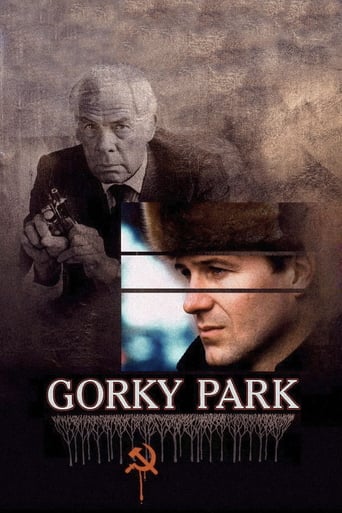
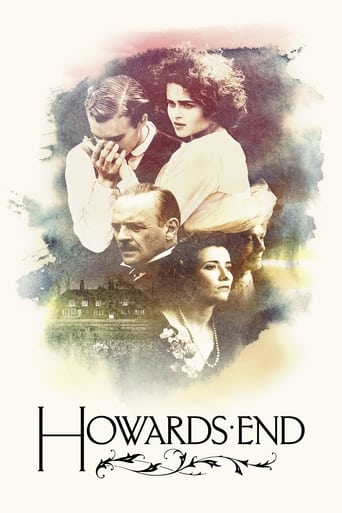
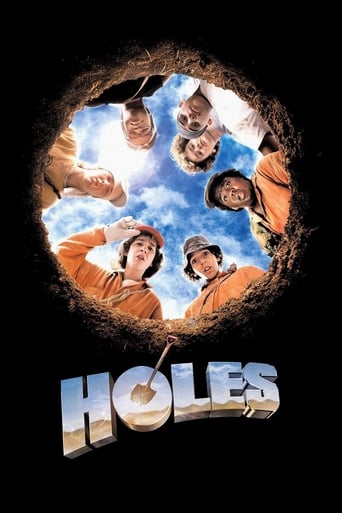

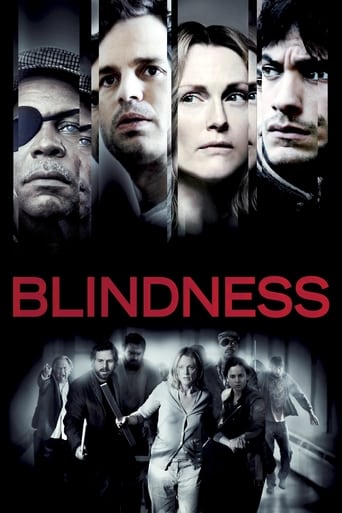
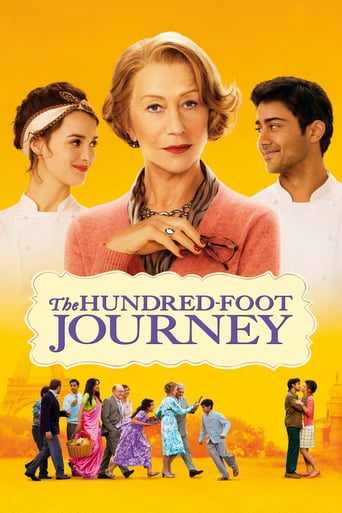
Reviews
Slow pace in the most part of the movie.
Am i the only one who thinks........Average?
A movie that not only functions as a solid scarefest but a razor-sharp satire.
This is one of the best movies I’ve seen in a very long time. You have to go and see this on the big screen.
Let me preface this review by mentioning that I have nothing but the greatest respect for David Lean and his skills as a master director. I have seen all of his films, and all of Hitchcock's films as well. Each is a master, and each has made one turkey; Hitchcock with "The Paradine Case" and Lean with this film. This movie is beautifully photographed (as all Lean films are), and the actors are first-rate (as they always are in Lean films). The director is one of the best in the business; so what happened? As a character from "Lovers and Other Strangers" would say "So What's the Story Richie?". The story is the culprit. It is just not compelling or strong enough to hold for two and three quarter hours. Peter Weir did psycho-sexual drama much better years earlier with "Picnic at Hanging Rock". A questionable rape film done by Kurosawa in the fifties, "Rashomon" handles not only two versions of a rape, but three, and is far superior to this film. The lead female character in this film just suffers from "virginitis". But ultimately, this film suffers from one incurable malady; one that Lean films had never experienced before; it is painfully boring. The story (what little story there is) could have been done in a one-hour special for television; it is that banal. As a matter of fact, a tv soap of the same name later developed with a one hour format. One other thing; Maurice Jarre (one of my favorite film score writers) wrote the worst score of his career for this film. The Indian band in the film made superior music, and you can judge how good that is when you hear it. If you are having trouble sleeping after a breakup, ladies, then this film is for you; it will put you out.
I identify quite a bit with this film. I've never been to India, but beginning in the mid-1980s I began frequent long summers in Thailand, and then lived there for a couple of years after retirement. Some of the same themes I see in this film I confronted in Thailand. You might think that odd since we are talking about almost a century apart from the novel and my travels, but the feeling not at home in a different culture could sometimes be pervasive. Being looked at as a foreigner was a common theme. And I often got off the beaten path and visited some pretty remote places...often alone...and a few times I felt sort of like the character Adela when she visited the overgrown Indian temple and was frightened by the monkeys.To begin with, this is one of those marvelous tales told by one of filmdom's greatest directors -- David Lean. It is, perhaps, not as ground breaking as "Dr. Zhivago" or "Lawrence Of Arabia", but it surpasses all his other films due to the haunting story so well told and the exquisite photography.It's a rare story that has so many interesting characters. The most interesting is Mrs. Moore, as played by Peggy Ashcroft. She is one of two characters in the story/film who seem to have a gut understanding of India and the unfairness of the British occupation. As Professor Godbole says, Mrs. Moore is a very old soul, and implies that in a former life she may very well have lived in India. Ashcroft is wonderful in this film! And, to a degree, the entire plot of the story revolves around her...even in death.The other character who understands things as Mrs. Moore does is Richard Fielding, as played by James Fox, the teacher. He doesn't hold to the strict class lines in the India of the time. I've always enjoyed Fox's roles in film, and this is certainly no exception.The third most interesting character is Dr. Aziz Ahmed, as played by Victor Banerjee. Ahmed, a doctor of the Muslim faith, is torn between disliking the British, and being open to them and their culture. He is particularly drawn to Mrs. Moore. Banerje is excellent here, as well.I wasn't overly impressed with Judy Davis, the young lady who has the breakdown in the caves, but she played the role satisfactorily.The one casting I disagree with here is of Alec Guinness as the weird Professor Godbole, a Hindu. Guinness does a fine job with the role...actually quite amusing, but why did David Lean have to cast a White person when there are so many talented Indian actors? Of course, the answer is that Lean and Guinness go way back. But I still think it was a poor casting choice.Nigel Havers does nicely as the Brit with the stiff upper lip as he is jilted twice. He is key to understanding the attitude problem the British had toward the Indians.Clive Swift was great at being the stone-faced British official...but we had no idea whether he had any actual acting ability. Ann Firbank, who played his wife, was better at being upper class snooty British.This film is, quite simply, a masterpiece of film-making.
Capturing the subtle and the grand details of Forster's original novel, A Passage to India remains, decades after its making, one of the great films of the last half-century. No need for a lengthy review here -- unnecessary given the 76 previous reviews. I will, however, comment on the casting of Alec Guinness. It is possible in film theory to talk about miscasting as a directing tactic. As I've stated in other reviews of mine, Kubrick so casted; it was almost a trademark for him. Hitchcock occasionally was forced to miscast; and Lean is another -- there are probably hundreds more examples from the last century of cinema. The point is, however, to ask, does the miscasting work, and why? And it does, of course, work in this film.Forster created in Godbole a cryptic commentator on the British presence in India -- a kind of sub-continental Greek chorus. How to convey this subtlety cinemagraphically? Lean manages a dual-role characterization by casting a veteran English actor as a Brahmin. It should be pointed out that the Indian people are, as the character Turton (the 'Collector' for Chandrapore) remarks early in the film, "our Aryan brothers" -- they are not of a different 'race' but genetically close to Europeans --they are simply darker skinned. Guinness' camp Godbole (who is perhaps less campy in Forster) perfectly captures this duality -- though I do not say that no other actor (including a native Indian actor) might not have as well. Otherwise there's no use remarking still another time on the film's greatness: some of the most remarkable cinematography (the crowd scenes at the opening, the almost-running down of Aziz and Ali on bicycles, the scene with the monkeys at the ruined temple, Aziz framed by one of the openings in the Marabar Caves as Adela lights a match -- the list is quite long.) Add to this, remarkable acting, memorable characters uniquely captured (Amritrao, Aziz' lawyer, is immemorable though he speaks perhaps four lines) -- this list is a long one as well.And finally, the theme: typically Lean, it is larger than ordinary existence and yet intimate at the same time: nothing less than the morality of colonialism in India as mirrored in the neurotic emotional state of a woman who represses all erotic feeling. Lean's achievement in film deserves its legendary statues, and APTI does not fail to uphold it.
As a Pole living and working in Arctic Siberian tundra, I developed a particular passion for quality history movies, especially period sagas related to the Colonial Age of the British Empire. This movie contains two mega-themes: 1. The culture/status clash between the Britons and the Indians; 2. The suppressed sexuality in two main protagonists - an English lady and an Indian medic. Both mega-themes are developed to a climax. The suppressed sexuality mega-theme raises the issue of dignity and self-control of a human being and of a foundation, possibly religion, on which these can be sustained. Speaking about the technicalities, I would note the titanic effort to fill the mass scenes with believable characters, beautiful cinematography and the great effort to reproduce the Victorian India ambiance.


